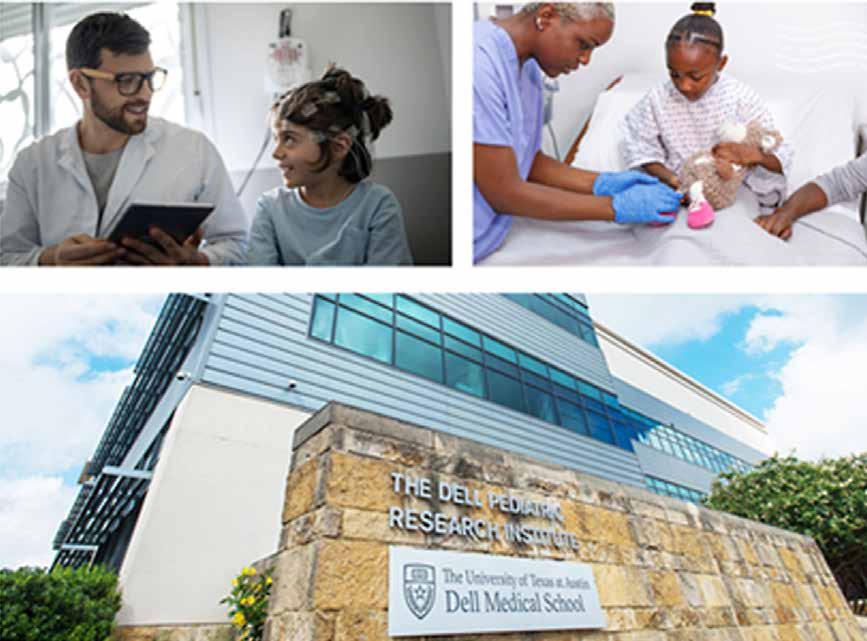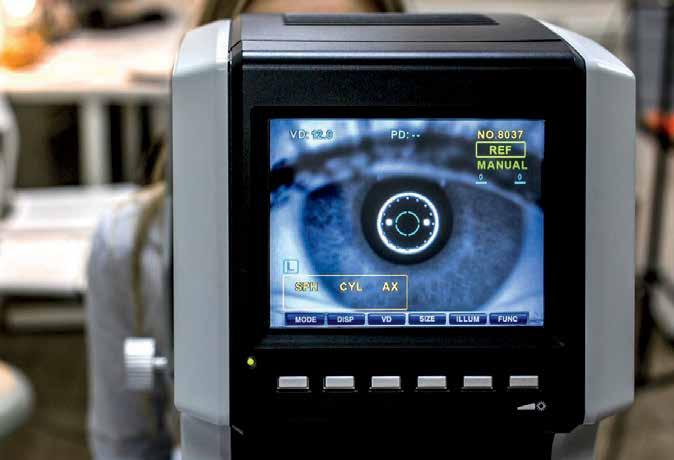Medical Staff Organizations – Five Things You Should Do


 By
Erin
By
Erin

Hospitals and medical staffs are highly regulated organizations with a myriad of laws and standards that must be followed. Medical staff leaders, advisors or medical staff professionals are responsible for leading and advising the professionals who are responsible for practitioner competence and conduct within the organization. As the year-end approaches, it is a good time for these individuals to evaluate the effectiveness of the peer review process and reflect on the related protections and obligations.
Below are five recommendations for a medical staff organization’s year-end review and reflection.
1. Update Governance Documents to Reflect Actual Practice. Governance documents include the medical staff bylaws, credentialing manual, hearing plan, rules and regulations, policies and other documents approved by the medical staff and designed to set and guide medical staff processes. Too often these documents will conflict or omit critical passages. All governance documents should be reviewed in the context of the laws and regulations that require these documents. State and federal laws and regulations set out the basic
requirements for the contents of the documents, as do many of the accreditation standards. It is far
better to review and revise your governance documents regularly, rather than learn they are deficient during an unannounced survey or regulatory proceeding.
2. Know the Scope of Your Authority. Medical staff bylaws generally identify the circumstances under which you can act alone and when your action(s) will need to be ratified by the committee. As the chair, you are acting
on behalf of the committee/ department between meetings. Do what is needed when needed, within the scope of your authority, but report your actions to the committee/ department on a regular basis and be sure your actions are properly recorded in the appropriate minutes. If summary or urgent action is needed, do not hesitate to call a special meeting. You are better off to have the protection of a committee action than to be acting alone or without ratification.
Know the Peer Review Protections of HCQIA, Texas and Organization. The Healthcare Quality Improvement Act (“HCQIA”) provides protection from liability for members of a professional review body/ medical staff, who take a professional

PRSRT STD US POSTAGE PAID PERMIT NO 1 HOUSTON TX PERMIT # 1149 AUSTIN TX Volume 5 | Issue 12
UT
See pg. 10 Inside This Issue UT Southwestern Researchers Identify a Regulator of Breast Cancer Development See pg. 11 INDEX
Framework ...................
Heart
Well Live Well
see Five Things...page 14
Claudia Lucchinetti Appointed Senior Vice President for Medical Affairs at
Austin & Dean of Dell Medical School
Oncology Research pg.3 The
pg.6 Healthy
pg.8 Age
pg.12
Medical staff organizations serve a very important role. Regularly reviewing governance documents and legal protections are vital to promoting and maintaining quality health care within an organization.
Sherri T. Alexander, J.D.
Muellenberg, J.D. Polsinelli, PC




Austin Medical Times Page 2 December 2022 austinmedtimes.com Content on the Texas Health Steps Online Provider Education website has been accredited by the Texas Medical Association, American Nurses Credentialing Center, National Commission for Health Education Credentialing, Texas State Board of Social Worker Examiners, Accreditation Council for Pharmacy Education, UTHSCSA Dental School Office of Continuing Dental Education, Texas Academy of Nutrition and Dietetics, Texas Academy of Audiology, and International Board of Lactation Consultant Examiners. Continuing Education for multiple disciplines will be provided for some online content. Join more than 100,000 medical professionals who get free CME with Texas Health Steps Online Provider Education. Choose from a wide range of courses relevant to your practice, including short tutorials and quick courses on topics like Medicaid guidelines, ethics and mental health—available 24/7. Learn more at TXHealthSteps.com. Your go-to place for CME on the go. TEEN CONSENT AND CONFIDENTIALITY: 1.25 AMA PRA Category 1 Credit(s)™ BREASTFEEDING: 2.00 AMA PRA Category 1 Credit(s)™ FOOD AND HOUSING INSECURITIES: Quick Courses FEATURED COURSES
By Bridget O’Brien,
FACS, FSSO, Texas Breast SpecialistsCedar Park, Georgetown
Tidings of comfort and joy can take on a different meaning during the holidays as a cancer patient. Some may not feel much like celebrating, especially if you’re a parent with cancer. Adding holiday season pressures and the challenge of fighting cancer to the everyday stress of parenting can be overwhelming.

With so much focus needed to manage your diagnosis and the effects of cancer and treatment, it may be hard or even impossible to maintain some of your family’s beloved holiday traditions. However, it is still possible to have a meaningful and joyful holiday with the ones you love, perhaps with some small adjustments that may make your family
celebration look a little different this year.
There’s no “wrong” way to celebrate Cancer can throw many wrenches into the holidays, from financial hardships and canceled travel arrangements, to missing your child’s holiday performances or school events.


As you navigate these twists and turns, it is important to keep in mind that there is no wrong or right way to celebrate the holidays when you are newly diagnosed with cancer or undergoing treatment. Do what feels right for you and your loved ones, finding joy in the happy moments. While tried and true holiday traditions are special, there is nothing wrong with starting new ones.
Talk about the holidays with your children
Children may be worried about their parent’s health or upset about changes to ‘normal’ family experiences, even more so at the holidays. As a parent with cancer, it is important to talk to your children and be honest,
albeit age appropriate, in explaining the potential changes that will affect them.

In a calm and reassuring tone, set expectations about your ability to run around town or participate in holiday activities. This can help alleviate the anxiety and uncertainty children may feel.
Let your children know when you aren’t feeling well but that you love them the same as always, no matter what. Being candid enables
your children to ask questions and feel comfortable expressing their own feelings.
Five tips for parenting with cancer at the holidays
1. Plan together with your children. Think about the types of things your children can do to help during the holidays. This can contribute to their sense of purpose and closeness to you.
Austin Medical Times Page 3 December 2022 austinmedtimes.com
see Oncology Research...page 14 Oncology Research Give Yourself The Holiday Gift Of ‘Presence’ While Fighting Cancer
For more info, visit m3missions.com or scan: SAVE $10 OFF WITH CODE: MEDTIMES2023 REGISTER TODAY AT M3MISSIONS.COM Global Health Conference M3Mobilizing Medical Missions CONNECT WITH OTHERS. BE INSPIRED. FIND YOUR MISSION. FEBRUARY 17-18, 2023 HOUSTON, TX CONFERENCE HIGHLIGHTS: • 75+ Exhibiting Organizations • 20+ Speakers • 20+ Plenary and Breakout Sessions • Speaker Q&A’s • Pre-Conference Workshop with CME Option • Nursing Resource Center • Academic Research Poster Presentations • Valuable Conference Resources AREAS OF INTEREST REPRESENTED: Medical missions, orphan care, WaSH (water access, sanitation, hygiene), human trafficking, refugee care, social justice, education, and more. Join us in-person for this two-day global healthcare missions conference! At the M3 Conference, you will be inspired by and learn from dozens of speakers; you will connect with other purposeminded people; and you will find your mission in the Exhibit Hall filled with over 75 organizations providing opportunities to serve. Together, we can learn ways to reach the unreached in this new season!
D.O.,
UT Austin Researchers and Physicians Team Up to Fight Childhood Diseases
Multidisciplinary
The Dell Pediatric Research Institute (DPRI) works toward a singular mission of meeting the needs of children and families of Central Texas with evidence-based, cutting-edge care. Managed by Dell Medical School, DPRI plays an important role in facilitating collaboration among interdisciplinary teams of clinicians and scientists from Dell Med and across The University of Texas at Austin – all with a focus on improving children’s health and pediatric care.
“Our ‘North Star’ is taking care of children in Austin, making sure they have access to all the care they need right here at home,” said Leah Harris, director of DPRI and chair of the Department of Pediatrics at Dell Med. “The way that you make clinical care cutting edge is by infusing it with an

Care
academic infrastructure. That’s where Dell Med and UT Austin come in – we bring together the experts who provide the evidence that informs care.”

Harris, who is also interim president and physician-in-chief at Dell Children’s Medical Center, describes the institute as a “one-stop shop,” uniting dozens of investigators across disciplines who are focused on major causes of death and morbidity in children: poor nutrition, cancer, birth defects and rare diseases, as well as studying how care is delivered to children who show up at emergency departments. Future investment and focus will also include developing a genomics institute that will allow for expanded precision medicine research that uses genetics and genomics to customize care for individuals, she said.
Launched in 2010 and located across the street from Dell Children’s Medical Center, DPRI was created with a $38 million challenge grant from the Michael & Susan Dell Foundation, aimed at growing and developing a full pediatric ecosystem in Central Texas. Improving Quality of Emergency Care for Children
Nationwide, more than 80% of children who need emergency care are treated at general emergency departments instead of specialized
pediatric facilities. Research shows most of those emergency rooms, or ERs, are not well prepared to meet the unique needs of children.
Katherine Remick, M.D., is working to change that. She leads the national Emergency Medical Services for Children Innovation and Improvement Center, a federally funded program co-led by Dell Med that aims to improve health care outcomes for
see Dell ...page 14
Postdoctoral Certificate in
Infant & Early Childhood Development
The online and hybrid PhD and Master’s programs in Infant and Early Childhood Development (IECD) with emphases in mental health and developmental disorders is a multidisciplinary degree that includes mental health, education, occupational therapy, physical therapy, speech and language development, and the neurosciences.
Austin Medical Times Page 4 December 2022 austinmedtimes.com
Fielding.edu/IECD Online & Hybrid PHD and MASTER’S DEGREES
For 45 years, Fielding has been educating scholars and leaders in pursuit of a more just and sustainable world.
Teams at Dell Pediatric Research Institute Focus on Birth Defects, Cancer, Prematurity and Improving Emergency
Austin Medical Times Page 5 December 2022 austinmedtimes.com
IT TIME TO EXAMINE your malpractice insurance? 7990_TX_HoustonMedTimes_NORCAL_Jun2021_v4.indd 1 5/13/21 3:10 PM
Unlike other Texas medical liability insurers, which are investor-owned companies, The Doctors Company remains fiercely independent and dedicated to your interests. Ask yourself, “Do I want an insurer founded by and for physicians that’s guided by my peers? Or do I want a profit-focused insurer that’s directed by Wall Street?” Join us and discover why delivering the best imaginable service and unrivaled rewards is at the core of who we are. IS
The Framework
St. David’s Round Rock Medical Center Begins $53.1-Million Capital Expansion
St. David’s Round Rock Medical Center announced today the start of construction on the hospital’s $53.1-million expansion. The expansion project will include two additional floors, with a 34-bed patient care unit, as well as four additional operating rooms (ORs) and support spaces.
The capital expansion is part of a $953-million investment in Central Texas healthcare infrastructure that St. David’s HealthCare announced in February.
“This investment in St. David’s Round Rock Medical Center allows us to continue
offering exceptional care in our rapidly growing community. The additional floors will increase room capacity and provide more availability for specialty care,” Jeremy Barclay, chief executive officer at St. David’s Round Rock Medical Center, said. “I am privileged to lead a team of dedicated healthcare professionals eager to serve the community, and it is compelling to hear patients speak of the extraordinary care they received. Because I strongly believe our team provides exceptional care, I want more people to experience this level of care when our help may be needed.”
$53.1 million expansion of the St. David’s Round Rock Medical Center hospital is underway

St. David’s Round Rock Medical Center’s two additional floors will include a fifth floor for a 34-bed intermediate care unit, as well as a fourth floor for future expansion. A one-story addition will be added to the hospital’s existing surgical suite, providing space for two equipped ORs and space for two future ORs.
The expansion will provide the hospital with more OR space to grow surgical specialties including neurosurgery, advanced orthopedic
Medical
and robotic services, among other complex specialties.
Upon completion of the expansion, St. David’s Round Rock Medical Center will have more than 200 beds and 11 ORs in use, with space for two additional rooms in the future. The hospital expects to hire over 60 new employees for additional positions being added within two years.
Construction is estimated to be completed in 2023.
In


Austin Medical Times Page 6 December 2022 austinmedtimes.com
Check
Improving customer
with
As low as $34 / month 800-971-8871 www.medicalcheckin.com Fast Patient Sign In Process Organizes Patients by Reason HIPAA Compliant TX-RAMP Certified Unlimited Data Unlimited Support
service
technology
Investment Will Include Two
Additional Floors, Patient Beds, Operating Rooms and Support Spaces
A

Austin Medical Times Page 7 December 2022 austinmedtimes.com Driving business, practicing law. wallerlaw.com We have healthcare law DOWN to a SCIENCE 100 Congress Avenue, Suite 1800, Austin, TX 78701 Fletcher Brown: 512-685-6400
FEEL GOOD AGAIN
centraltexasfoodbank.org
Presented by
Healthy Heart
St. David’s HealthCare Vice President to lead 2022-23 Austin Go Red for Women Movement
By Denise Bradley American Heart Association
Community leader to chair American Heart Association’s initiative to improve women’s heart health
TheAmerican Heart Association, the world’s leading nonprofit organization devoted to world of healthier lives for all, announces Denise Bradley, Vice President of Communications and Community Affairs at St. David’s HealthCare, as the community volunteer chair of the 2022-2023 Central Texas Go Red for Women movement. Go Red for Women is a worldwide initiative of the American Heart Association designed to increase women’s heart health awareness and serve as a catalyst for change to improve the lives of women locally, nationally, and globally.
Cardiovascular disease is the No. 1 killer of women in the United States, claiming more lives each year than all forms of cancer combined. Cardiovascular disease continues to be a woman’s greatest health threat, taking the life of one in every three women.
“Heart disease has touched my life both personally and professionally,” said Bradley. “My mother had a heart attack before the age of 40, and my younger sister has already suffered two strokes. As a leading provider of cardiovascular care and women’s services in Central Texas, St. David’s HealthCare is proud to partner with the American Heart Association to help more women live healthier lives. It’s a privilege to chair the Go Red Movement this year. We know that heart disease knows no boundaries. It affects people of all ages, all races and all walks of life. Working together, we can educate and inspire more women than ever to take control of their heart health.”
“We are thrilled to have Denise

Bradley’s experience, conviction and passion help to drive Go Red for Women in Central Texas. Together, we know that we will have a positive impact on the lives of women in our community and the families that depend on them,” said Senior Development Director Theresa Tighe.

Returning this year is the Women of Impact/Teen of Impact initiative. Women and teens are nominated by their peers to participate. The nominees will recruit champions from their networks to form a fundraising team and have a direct impact on women’s health and the Go Red for
Women vision of creating a passionate community dedicated to addressing health issues unique to women. The nominee whose team makes the largest impact in each market will be named the local Woman of Impact Award Winner or Teen of Impact Award Winner.
This year’s Go Red for Women movement and its local achievements will be celebrated on February 24, 2023 at the Austin Go Red for Women Summit, sponsored nationally by CVS Health and locally by St. David’s HealthCare.
For more information about Go Red for Women visit AustinGoRed.heart.org.
Austin Medical Times Page 8 December 2022 austinmedtimes.com
GIVE
We’re all ready to feel good again, but for our food insecure neighbors there’s no vaccine to fight hunger.
The 1 in 5 Central Texas children at risk of hunger deserve a shot at a happy summer.
Denise Bradley, Vice President of Communications and Community Affairs at St. David’s HealthCare






















Austin Medical Times Page 9 December 2022 austinmedtimes.com
Claudia Lucchinetti Appointed Senior Vice President for Medical Affairs at
UT Austin & Dean of Dell Medical School

Dr. Claudia F. Lucchinetti, who currently serves as dean of clinical and translational science and chair of the Department of Neurology at Mayo Clinic in Rochester, Minnesota, has been named senior vice president for medical affairs at The University of Texas at Austin and dean of Dell Medical School. Her appointment will begin Dec. 1, and she will hold the Frank and Charmaine Denius Distinguished Dean’s Chair in Medical Leadership
In addition to her roles as dean and chair at Mayo Clinic, Lucchinetti holds the Eugene and Marcia Applebaum Professorship in Neuroscience and is director of the Center for Clinical and Translational Science. She also serves on the Mayo Clinic Board of Governors and Board of Trustees.

A world-renowned researcher with expertise in immunopathology and pathogenesis of multiple sclerosis (MS), neuromyelitis optica (NMO) and acute disseminated encephalomyelitis, Lucchinetti has contributed novel insights underlying the mechanisms of tissue injury in patients with early stages of MS and other central nervous system disorders. She has been the recipient of significant research grant funding from the National Multiple Sclerosis Society, the National Institute of Neurological Disorders and Stroke, the National Center for Advancing Translational Sciences and the U.S. Department of Defense.
Lucchinetti also has an active clinical practice and is internationally recognized for her work in the evaluation of patients with MS, NMO and complex inflammatory demyelinating central nervous system disorders.
“Dr. Lucchinetti is an example of the world-class talent we are attracting to our university, and she will lead our efforts to draw even more talent to UT to fulfill our mission to revolutionize how people get and stay healthy,” said
UT Austin President Jay Hartzell. “We are excited to have her join UT in this pivotal role, as we expand our efforts in health care delivery, education and research, and seek to establish Central Texas as the next major hub for health care and life science innovation.”
Lucchinetti received a B.S. in biology from Northwestern University before earning an M.D. from Rush Medical College in Chicago. After an internship at Rush-PresbyterianSt. Luke’s Medical Center, she was a neurology resident at Mayo Clinic School of Graduate Medical Education. She also completed a fellowship in neuroimmunology at Mayo Clinic, with additional training as a Mayo Foundation scholar in experimental neuropathology at the Brain Research Institute in Vienna, Austria. She joined Mayo Clinic faculty in 1996.
“It’s an honor and an incredible opportunity to join the team at Dell Med and UT Austin,” said Lucchinetti. “With this mission-focused team, in collaboration with partners, and considering the unique relationship the medical school has with the Austin and Travis County communities, there are unparalleled opportunities to build an integrated academic health system that innovates and transforms health and health care for the benefit of all.”

Austin Medical Times Page 10 December 2022 austinmedtimes.com
THE
I
To learn more about the Army or Army Reserve, call MAJ Tamela Mitchenor at 210-692-7376, or tamela.l.mitchenor.mil@mail.mil
©2010. Paid for by the United States Army. All rights reserved.
STRENGTH TO HEAL and get back to what
love about family medicine
Do you remember why you became a family physician? When you practice in the Army or Army Reserve, you can focus on caring for our Soldiers and their Families. You’ll practice in an environment without concerns about your patients’ ability to pay or overhead expenses. Moreover, you’ll see your efforts making a difference.
Claudia F. Lucchinetti, M.D.
Breast Cancer Development

UTSouthwestern researchers have identified a causative signaling pathway in breast cancer, providing potential new targets for treatment of the most common type of cancer in women. The findings, published in Science Advances, build on previous work in which the group identified a gene called ZMYND8 as a regulator of breast tumor growth.
In the new study, the researchers further characterize a critical role for ZMYND8 and levels of 27hydroxycholesterol in the development of breast cancer.
“This study identifies a cause of breast cancer,” said lead author Weibo Luo, Ph.D., Associate Professor of Pathology and member of the Harold C. Simmons Comprehensive Cancer Center.
Breast cancer is a leading cause of cancer death among women worldwide. The new discovery may represent a step toward developing effective therapies
and identifying breast cancer risk in patients early.
The development of breast cancer begins with a population of cells called breast cancer stem cells that have the remarkable ability to self-replicate. These “bad seeds” drive tumor growth, but how this occurs is not well understood.
Following the identification of ZMYND8 as a regulator of breast cancer growth, Dr. Luo and his colleagues wondered if the gene also played a role in the development of tumors.
Using a mouse model in which the researchers had knocked out the ZMYND8 gene and complementary cell culture experiments, the researchers found that ZMYND8 promotes breast cancer stem cell maintenance and self-renewal, and stimulates the transformation of these cells into tumor cells, leading to breast tumor initiation. But how?
The researchers demonstrated that ZMYND8 activity leads to increased production of 27hydroxycholesterol – the major product (or metabolite) of cholesterol oxidation in the human body –while simultaneously blocking 27-hydroxycholesterol breakdown. Cholesterol helps control cell survival and growth, and 27hydroxycholesterol has previously been shown to modulate the estrogen receptor (ER) to promote ER-positive breast cancer progression (the most common type of breast cancer). But its role in breast cancer stem cells and tumor initiation hadn’t been previously investigated.
The resulting accumulation of 27-hydroxycholesterol leads to activation of the liver X receptor (LXR), which alters gene expression. This ZMYND8-27-hydroxycholesterol-LXR axis collectively boosts the activity of ER-positive and triple-negative breast
cancer stem cells and pushes them to grow into breast tumors.
“Together, our study uncovers ZMYND8 and 27-hydroxycholesterol as possible therapeutic targets for the treatment of breast cancer and possible biomarkers that predict risk of breast cancer recurrence and metastasis in patients,” added Dr. Luo.

Austin Medical Times Page 11 December 2022 austinmedtimes.com
Now you can get the Austin Medical Times delivered straight to your inbox. Never miss an Issue of Austin’s Leading Local Healthcare News Online. Subscribe to Our Digital Issue austinmedtimes.com UT Southwestern Researchers Identify a Regulator of
Breast cancer stem cells (BCSCs) are responsible for breast carcinogenesis. Researchers’ work reveals potential targets for killing BCSCs to prevent breast tumor recurrence and metastasis.
By Claire Irwin, HHS Age Well Live Well Coordinator


For many Texans, December is a time to get together with family and friends to enjoy a good meal and conversation. These times can remind us of the importance of staying connected with family, friends and neighbors.
As you gather this holiday season, consider discussing your plans for your future with your loved ones. While many of us understand that it is important to plan for the future, knowing how to start the conversation can be challenging.
There are many components of planning for our older years to consider, including housing, social connection, mental health support, health screenings, trauma-informed care and recreation. While this might seem overwhelming, starting this conversation early, and ideally before a crisis, is important.
The Texas Health and Human Services Aging Services Coordination office created Texas Talks to help make these conversations easier. Texas Talks helps people talk with their family and friends about aging and needs that may arise. It also encourages people of all ages to think about how they would

like to spend their older years.
Every November and December, Texas Talks releases four new topics with the idea that each topic will encourage conversations and hopefully an action plan.
Texas Talks provides resources and worksheets to help get the conversation started. Before talking with your loved ones, consider the following questions:
1. Identify what is important to you. What are your concerns? Think about if you would like to age in place. What parts of your life do you want to make sure you plan for? Thinking about these things before talking to your loved ones can help you plan the conversation.
2. Pinpoint the people in your life you would like to involve in these conversations. Consider family, friends or close neighbors who will affirm your preferences and have the time and space to be an active listener.
3. Pick a time, place and venue. Maybe it will be at a planned gathering or perhaps you would prefer to have a conversation over the phone.
4. Reflect after the conversation and create an action plan. Having supportive and encouraging
Austin Medical Times Page 12
Start Conversations about
cookiedelivery.com cookie delivery cookie delivery Warm cookies, delivered.
Age Well, Live Well
Aging this Holiday Season with Texas Talks
Dell
Continued from page 4
children in emergency settings.
“There’s as much as a fourfold decrease in mortality for critically ill and injured children who go to emergency departments that are well prepared to treat kids,” said Remick, who is also an associate professor in the Dell Med departments of Pediatrics as well as Surgery and Perioperative Care and a care provider at Dell Children’s. “Our goal is to help every emergency department in the country to fully integrate the needs of children into their everyday practice.”

To do this, Remick and her collaborators from across the country engage front-line emergency care teams and offer them evidence-based resources to implement changes and improvements in pediatric emergency care – such as how to assess pain in children or how to manage care for kids during pandemics.
“By actively helping to implement these quality improvement methods, we can change an entire system of care in less than three to five years – far faster than it would take if we simply provided guidelines and left emergency care teams to integrate changes on their own,” said Remick.
Importantly, this work is scalable, replicable and measurable. In that context, Remick and her team are working to develop a national quality improvement data registry that provides a platform for all emergency departments, including those in rural and remote areas, to engage in pediatric quality improvement efforts.
Focus on Nutrition and Closing Food Insecurity Gaps
Megan Gray, M.D., MPH, is a community pediatrician whose research at DPRI focuses on early-life nutrition. In her clinical work at the North Central branch of CommUnityCare Health Centers, she serves mostly immigrant families and helps to connect them with food resources in Travis County.
“This population is already vulnerable because they are recently
Age Well
conversations about aging will ideally result in action steps. These conversations can make everyone feel better, and it can be a huge relief to have a plan in place.
Aging Services Coordination encourages you to start the conversation
arrived, may not have established connections in the community and are living with the constant fear of deportation,” said Gray, who is also an assistant professor of pediatrics at Dell Med. “When it comes to food insecurity, that has been the greatest challenge: trying to identify the families that need help and then finding the right messengers to dispel some of that stigma and fear.”
Hand in hand with food insecurity are health problems that arise from what nutritionists call a “monotony of diet,” eating the same often high-calorie, low-nutrient foods, Gray said. Additionally, the threat of food scarcity can lead to disordered eating behaviors, and children may end up with obesity and other issues that can follow them into adulthood.
In her work with other researchers at UT’s Department of Nutritional Sciences, Gray says she’s seeing troubling patterns of type 2 diabetes, high cholesterol, liver disease and obstructive sleep apnea among patients as young as 9 years old. To combat this, Gray is focused on obesity prevention, especially in the critical “First Thousand Days” of life, where healthy nutrition has an outsize impact.
She was recently awarded the American Diabetes Association Junior Faculty Award to examine sleep and feeding in this age group, tracking infant sleep through accelerometers, and helping teach sensitive infant feeding in group visits at CommUnityCare. An upstream focus of Gray’s research is examining how intergenerational obesity and food insecurity connect, and how to stop the unhealthy cycle.
“The best systemic things you can do for childhood obesity prevention stem from supporting families through programs like parental leave, paid child care, living wages so families don’t have to work multiple jobs – anything that would relieve stress for parents, and any kind of food support. It’s all interconnected,” said Gray.
Rethinking the Fight Against Pediatric Cancers
The research John Powers, Ph.D., is doing at DPRI has a simple but potentially groundbreaking goal:
to make cancer therapies less toxic for kids.
“Pediatric patients are treated with chemotherapy and radiation – toxic agents that can save their lives. But that treatment also leaves their bodies damaged,” said Powers, who splits his time between DPRI research and teaching at Dell Med as an assistant professor of pediatrics. “We call these ‘survivorship issues,’ and though these problems can affect adults too, the damage to children is much more profound.”
Powers’ lab is looking at two alternatives to traditional pediatric cancer treatments. He and his team, which includes researchers at UT’s College of Pharmacy, are working to understand the roles that different types of RNA play in cancer development to ultimately create new therapies, including for pediatric neuroblastoma, a type of brain tumor mainly affecting kids age 5 and younger. This work focuses partly on targeting special “small RNA” molecules to limit cancer cells’ actions.
Powers is also pursuing a platform for personalized cancer vaccines that use a patient’s own cancer mutation profile to target the person’s specific disease. This approach will trigger the
body’s own immune system to attack and eliminate tumors.
“Both of these approaches are likely far less toxic than chemotherapy and other genotoxic treatments that remain part of the standard of care for many cancers,” said Powers. “We hope they will eventually be used for adults too.”
Genomics: The Next Frontier of Pediatric Care
Looking ahead, Harris says DPRI will invest more in translational research efforts, particularly in the areas of genomics – the study of a person’s genes and the interaction of those genes with one another and a person’s environment.
“We are now moving into an age when precision medicine is the key to treating children who have diseases caused by gene defects, gene-environment interactions and growth disorders,” said Harris. “In this era of gene editing therapy, we are even seeing the ability to not only target the disease by changing the patient’s genes, but also targeting therapy the same way. It’s a beautiful collaboration between clinical care, research, pharmacy, nutrition and pediatrics since so much of these therapies are going to involve all of us.”
with your loved ones. To get started with Texas Talks, go to the Aging Well Resources Order Form and type “Texas Talks” in the resource name box. Learn more by visiting the Texas Talks website.
Austin Medical Times Page 13 December 2022 austinmedtimes.com
Continued
from page 12
Five Things
Continued from page 1
review action (a) in the reasonable belief the action was in furtherance of quality health care, (b) after a reasonable effort to obtain the facts, (c) after adequate notice and hearing and (d) in the reasonable belief that the action was warranted by the facts. In addition to this federal protection, Texas law provides similar protection for peer review participants, and often, your organization will have an indemnification policy or provision that further protects you and your committee members acting in good faith from damages. Committee participants and members should be reminded on a regular basis of these protections and that they were specifically designed to encourage peer review aimed at improving patient care.
3. Know Your Reporting Obligations. The National Practitioner Data Bank (“NPDB”) defines the circumstances under which a hospital must report a physician or dentist. These
circumstances include (a) when a professional review action adversely affects their clinical privileges for 30 days or longer or (b) when a physician surrenders clinical privileges while under investigation or in exchange for not conducting an investigation. Failing to report when required to do so can result in the loss of immunities under HCQIA for up to three years, along with a monetary fine. Texas similarly requires a health care entity or a medical peer review committee to report the circumstances to the Texas Medical Board.
4. Understand Confidentiality and Peer Review Privilege Protections. State peer review privileges and protections are often dependent on maintaining confidentiality of the records and proceedings. Failing to maintain confidentiality can act as a waiver of the privilege and permit the introduction of confidential peer review documents and testimony in litigation in the future.
Oncology Research
Continued from page 3
2. Have backup plans in place and ask for help. Reach out to friends or family if you are not feeling well enough to drive your children to a holiday event. Ask someone to record your child’s performance in holiday productions if you can’t attend in person.
3. Incorporate technology. Take advantage of technology to bridge the distance with extended family and friends. Just because you aren’t there in person doesn’t mean you can’t celebrate with each other virtually.
4. Put your health needs first. If it feels unsafe to follow through on holiday plans, it is okay to break from tradition. Give yourself permission to change where, when, with whom, and how you spend the holiday.
5. Know it’s okay to be disappointed.
It is all right to tell your children that this holiday season will be different, and it may even bring some disappointment. Help your children prioritize the important events during the holidays and focus on the purpose behind celebration and traditions.

6. Reach out to your healthcare team for any medical questions that may come up or any support
Peer review privileges and protections are designed to promote candor in the peer review process and identification of opportunities to improve patient care. Without confidentiality and the corresponding privileges and protections, committee members would be reluctant to analyze and frankly discuss areas for improvement in a peer’s clinical care.
Medical staff organizations serve a very important role. Regularly reviewing governance documents and legal protections are vital to promoting and maintaining quality health care within an organization. Even though these may be challenging times for an organization, medical staff leaders should prioritize a review of its processes and the impacted governance documents.
Published by Texas Healthcare Media Group Inc.
Director
of Media Sales
Richard W DeLaRosa
Senior
Designer
Jamie Farquhar-Rizzo
Web Development
Lorenzo Morales Distribution Brad Jander Accounting Liz Thachar Office: 512-203-3987
For Advertising advertising@ medicaltimesnews.com Editor editor@medicaltimesnews.com
they can offer to help you spend time with your family safely. This holiday season, give yourself and your children the gift of presence. Helping children cope with adversity is a great lesson to provide not just at the holidays, but year-round. Don’t let cancer be the main focus, but instead, take this time to pause, be present, and enjoy the holidays with those you cherish most.
Austin Medical Times is Published by Texas Healthcare Media Group, Inc. All content in this publication is copyrighted by Texas Healthcare Media Group, and should not be reproduced in part or at whole without written consent from the Editor.

Austin Medical Times reserves the right to edit all submissions and assumes no responsibility for solicited or unsolicited manuscripts. All submissions sent to Austin Medical Times are considered property and are to distribute for publication and copyright purposes.
Austin Medical Times is published every month
P.O. Box 57430 Webster, TX 77598 7430
Austin Medical Times Page 14 December 2022 austinmedtimes.com
without the p roper resou rces especially those you can tru st . At the Ameri can H ea r t Association, we’re p roud t o be come that resou rce with Intelligo: a science-based, onl i ne professional education hub for healthcare professionals everywhere. Latin for “to understan d , ” thi s compendium of continuing education tools and training resources curated by experts is how we’re helping healthcare providers thrive in their careers and stay ahead of the curve at every turn to improve patient outcomes.


Austin Medical Times Page 15 December 2022 austinmedtimes.com Expe r tl y cu f or e xpe r ts Co n sta n t l y u pda t e d wit h t h e i n d u str y ’s l a t e st in fo r matio n A lway s a cce ss ib l e w h en and w h e re it co u nt s Aven u e s of g rowt h & ed u cation fo r all ca ree r l eve l s
A resou rce c raf t ed & cu ra t e d b y t h e fo remo st ex pe r t s i n m edici n e i n t ell i gohu b .o r g P o we r ed b y

Austin Medical Times austinmedtimes.com


 By
Erin
By
Erin

















































